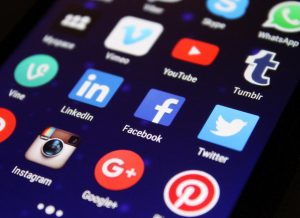 Recently the subject of personal privacy online, especially in the context of Facebook has come to the forefront of the public’s attention. Facebook has even acknowledged that it has allowed 3rd parties access to the platform users’ personal data, without their consistent. I find this uproar fascinating.
Recently the subject of personal privacy online, especially in the context of Facebook has come to the forefront of the public’s attention. Facebook has even acknowledged that it has allowed 3rd parties access to the platform users’ personal data, without their consistent. I find this uproar fascinating.
I have only halfheartedly been following the latest news regarding Facebook, mainly because it disinterested me. This whole fiasco was as foreseeable as it was avoidable, and perhaps that is why I find the recent uproar interesting. Before the revelations of Cambridge Analytica came to the surface most people didn’t think twice about all of those free games on Facebook. The ones where you supply them the list of all your friends, the ability to read and write to your wall, etc, and they’ll tell you what your personality type is, or what Disney character you are.
And, yet, perhaps most people still don’t draw that connection.
You Are The Product
If an online service is being provided for free, odds are that you are the true service – a commodity that some company or app developer is purchasing by way of a “free” service, and then you are being sold in some fashion. Companies exist to make a profit, and most online services are NOT provided as some sort of charity or loss-leader – though there are exceptions. Even free WiFi is suspect, or products you pay for – like your fancy new television – are subject to this economic role reversal.
I have been saying for a while, and not just about Facebook. In my opinion, Google represents an even larger, and for most people even more unimaginably, leak of their personal privacy. It is reassuring that the public conversation is beginning to question the “charity” of all of Google’s free services, but even that doesn’t seem enough to change people’s habits.
The problem is not specific to Facebook or Google, but rather a problem of deep-data and Google, unfortunately, has very deep ties into a lot of consumers day-to-day lives. Something as simple as typing in some health systems into Google search, logging into to your doctor’s website to schedule an appointment, or even making a phone call or sending a text message provide a digital fingerprint of sorts that provide a deeper level of insight into people’s personal lives than they sometimes share with their own spouses.
Digital Diversity
The obvious solution is to pay for services if possible. Companies are less likely to misuse personal information if they received that information through a paid relationship. Moreover, diversifying our digital lives is crucial.
Competing companies are even less likely to share data with one another. Using a web browser from Mozilla, a phone from Apple, a search from Microsoft, and an email from Google means that the information that could have been in the hands of a single company (had you used Google for your browser, phone, search, and email) is now spread across four companies.
Diversifying our digital lives is about minimizing the data we have to expose to any one company. A search online should never be able to be correlated back to the intention of a phone call.
In addition to diversifying what you can, staying secure and retaining privacy online also means limiting your exposure. Do you really need to take those Facebook polls and quizzes? Perhaps, if you really thought about it, you could do without Facebook entirely.